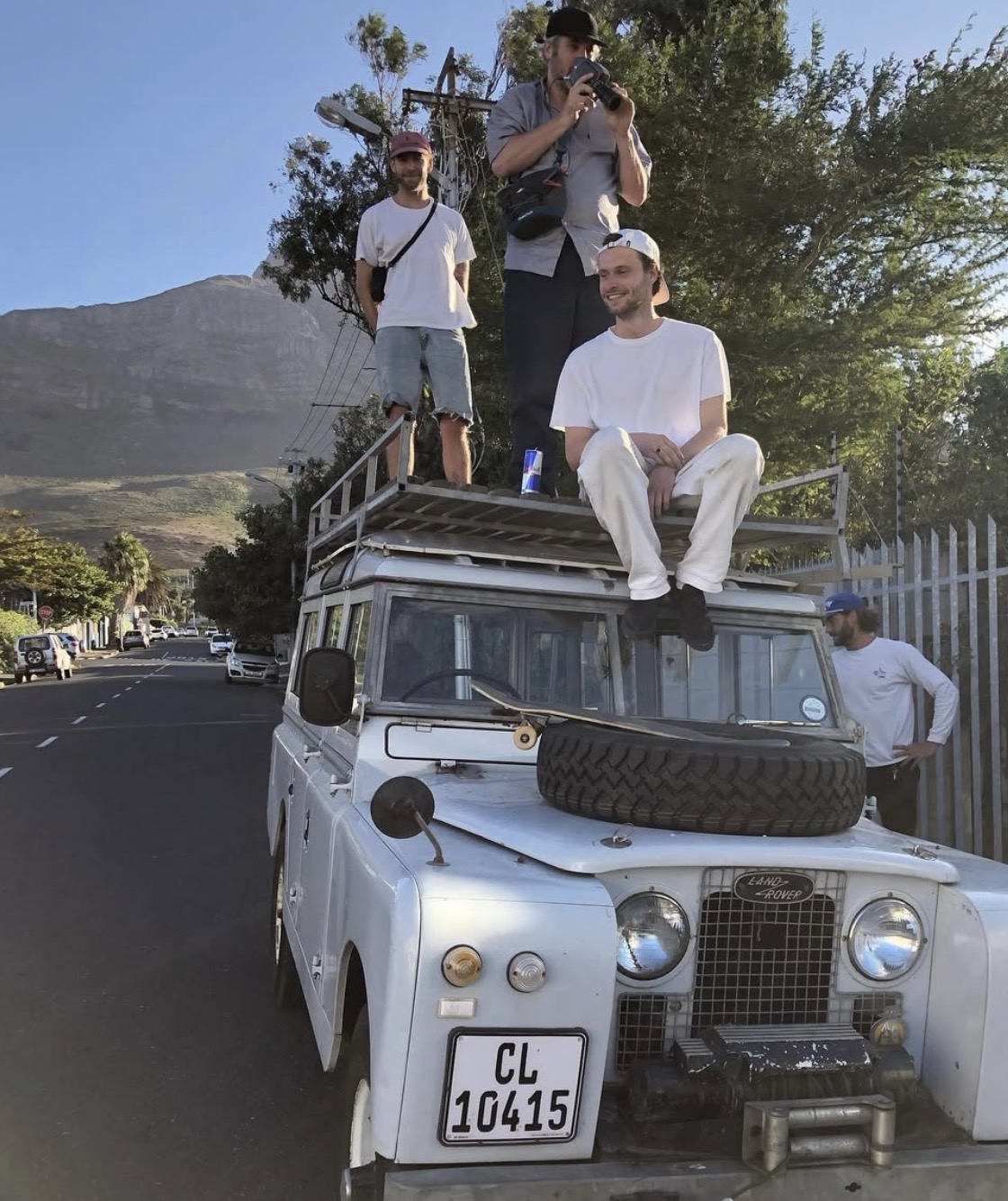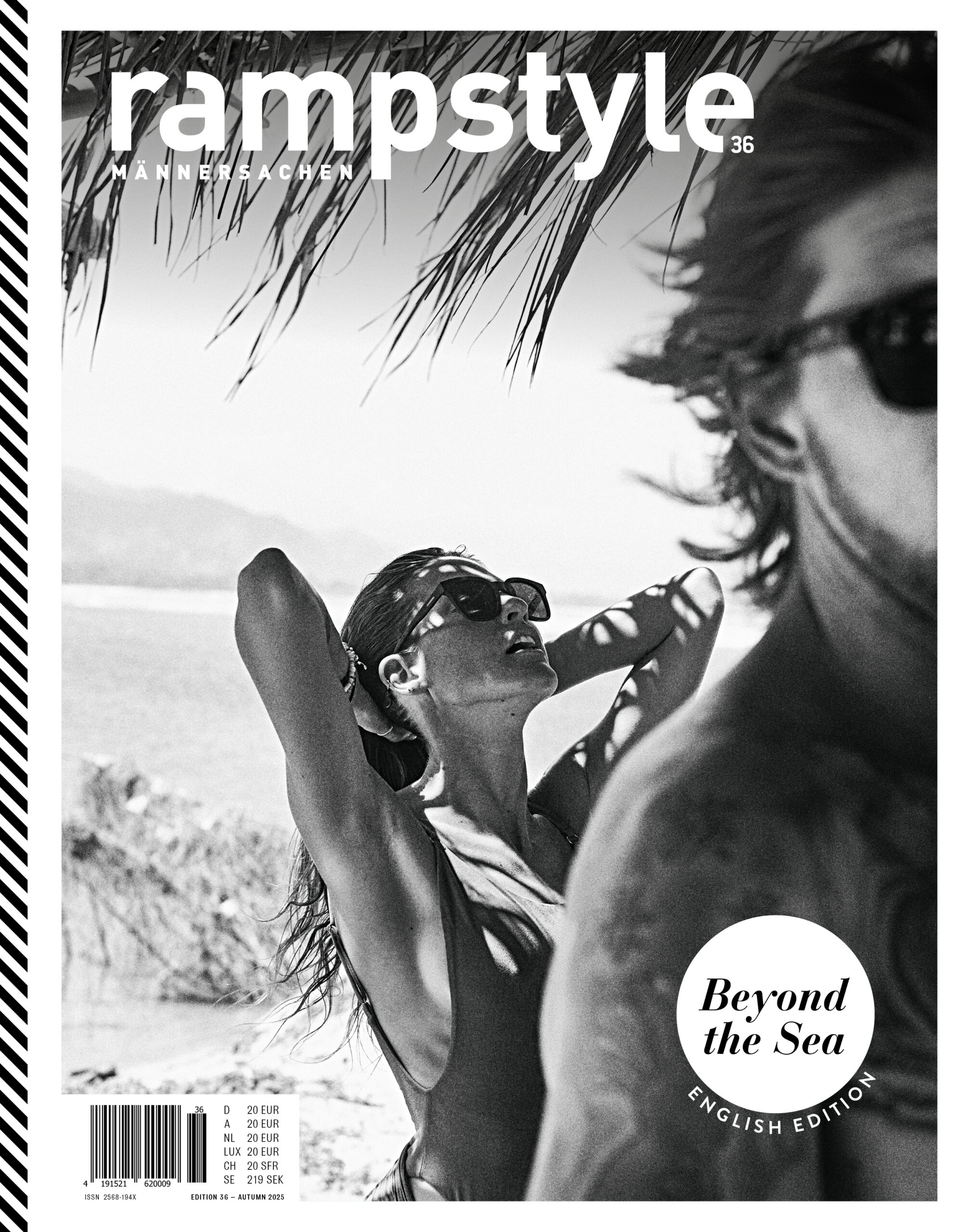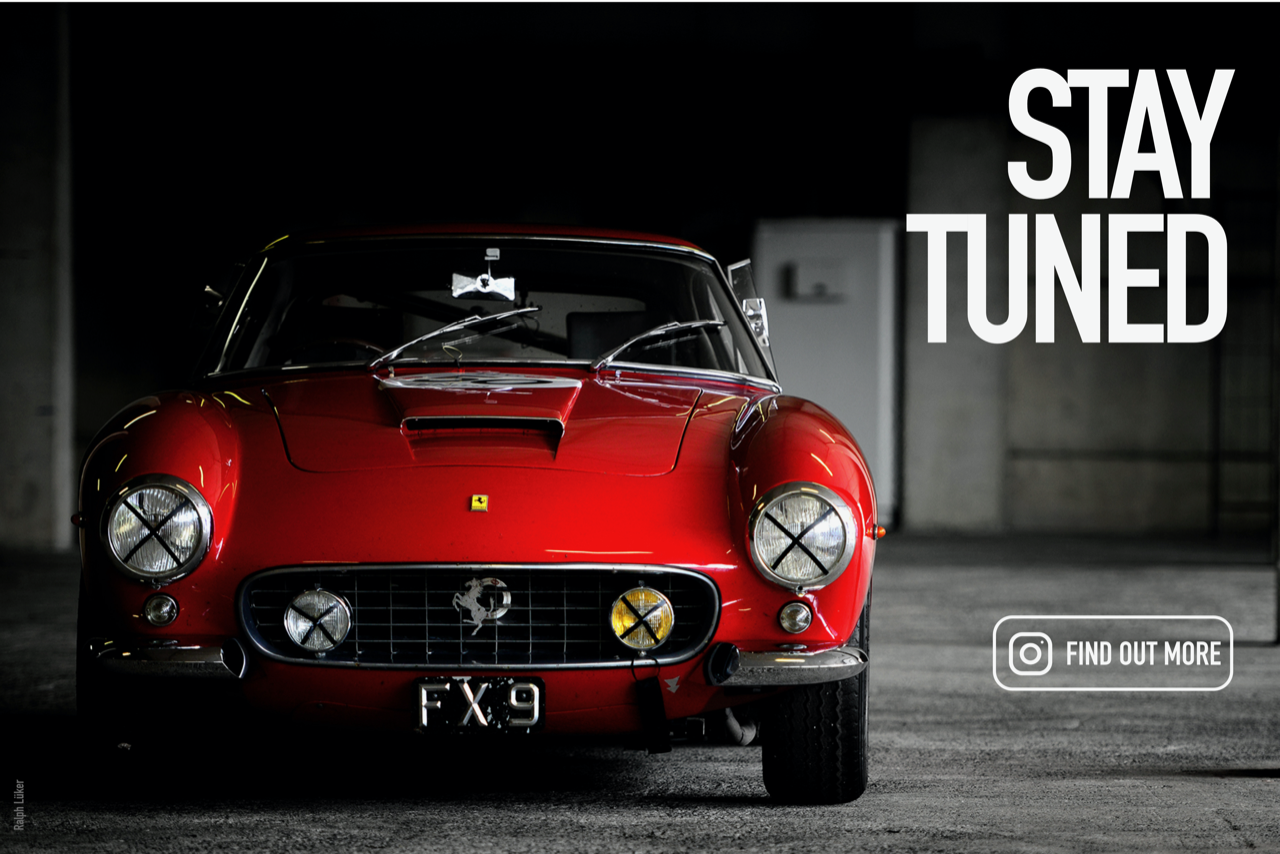Few people can claim to have met their sponsor on the way to the hospital. But that’s exactly how it went for JOST ARENS. Then again, Jost Arens is a twenty-eight-year-old professional skateboarder. We spoke with the four-time German champion about his career, the appeal of the sport and broken bones.
Turns out there was only one.

Jost, for everyone who doesn’t know you: who are you?
My name is Jost Arens, I’m twenty-eight years old, originally from Warendorf near Münster, now living in Cologne, and I’m a pro skater.
How did that happen?
My dad used to skate and passed the passion on to my older brother. And as it usually goes with younger siblings, of course I wanted to do exactly what my big brother was doing. We were constantly fighting over his skateboard until I finally got my own. I was five at the time.
Before you became a pro skater, you had actually wanted to go into soccer, isn’t that right?
That’s right, just like probably every second kid in Germany. But then skating somehow took over. At fourteen I earned money from skateboarding for the first time – a hundred euros a month. I thought that was crazy. Sure, I knew that the big names like Tony Hawk made a living at it – but me, in Germany?
Did you spend the money on skateboards?
Luckily, by then I already had sponsors who supplied me with boards. Which also meant my parents no longer had to pay for them – when I was a kid, they sometimes sacrificed family vacations so they could finance my hobby. The wear and tear just kept getting worse.
So how do you manage to make a living from skateboarding?
You definitely need two big sportswear and energy drink sponsors. In Germany there are maybe three or four people who have managed that. In the US the top skaters earn millions a year. At sixteen I had the chance to move to America. I would have made a lot more money there, but moving to California alone at that age, far away from family – that wasn’t for me. I’m very close to my family.
You work with Red Bull. How did that come about?
That’s actually a really funny story. I was fourteen and competing in a contest in Berlin when I had a bad fall. While I was lying in the ambulance, a stranger poked his head in and asked, “Hey, you okay? Want us to come to the hospital with you?” It was only a little while later that he mentioned he was a manager at Red Bull and that they had wanted to meet me. We clicked right away: I knew what I wanted to do, they knew how they could support me. I’ve been riding for Red Bull for twelve years now. I think I’m their longest-serving skater in Germany.
What does skating mean to you?
For me it’s pure freedom. No coaches, no fixed times. I can skate whenever and however I want. Twice a week or seven times, for an hour or the whole day. It’s a vibe – self-determined, creative, full of energy. And the adrenaline is a huge part of it for me. I need that. I like doing dangerous stuff. Skating pushes me to get the best out of myself.
And what’s the best thing about doing it professionally?
It’s not nearly as cut-throat as most other sports. Just this past weekend, for example, my best friend – he’s one of the top three skaters in Germany, perhaps even in Europe – didn’t make the finals. But I did. And he was just as happy for me as if he’d won himself. Besides that, probably the greatest benefit is that at twenty-eight I’ve already traveled the world and met amazing people everywhere. Skating is simply a great way to connect. When I come to a new city, I check out a few skateparks – and boom, I’ve got a handful of new friends.
When Tony Hawk was at his peak – around the turn of the millennium – it was always about who landed a trick first. Is that still the case?
Personally, I just go out and have fun. But Tony Hawk was a halfpipe skater, and I skate in the streets. So there isn’t really that one trick everyone’s chasing.
How do you prepare for a dangerous stunt?
I don’t. I also don’t set myself a date for performing a particular trick. That stresses me out too much. Then I can’t sleep, and I start imagining all the worst-case scenarios. That’s why I go by instinct. If I’m feeling good, I’ll try something new.

We’ve already touched on the danger inherent in skating. Which bone haven’t you broken yet?
I’m actually break-free. Well, almost. Once I fractured a metatarsal. But after four or five weeks I was back on my board as usual. The worst part was the time after the fall. At first you don’t trust yourself anymore, and you often feel phantom pain – longer than it really hurts. But you just have to get over it. It’s all in your head.
Do you get nervous before contests?
No, I don’t. Even with ten thousand people watching, I block it out completely. It’s like wearing blinders – I don’t see the crowd, I don’t hear a thing.
What’s your favorite German city to skate in?
Stuttgart. Every other skater will tell you the same – that and Berlin. The architecture is beautiful, the streets are smooth, only the police can be a little stricter sometimes. [laughs] But overall, Stuttgart definitely holds its own against the big skateboarding cities like New York.
How long do you want to keep skating?
As a hobby: until I drop. Professionally it’s different, my sponsors decide that. But that’s not really what matters to me. For me it’s about having fun.
What are your plans for life after your skateboard career?
That’s actually a tough one. When I was finishing school I had severe claustrophobia and could barely attend classes. Every day was a battle. After graduating I wanted to get a grip on the anxiety, so I skated full time for a year. The plan was to do an apprenticeship afterward. Ten years have gone by since then, the anxiety is gone, but I still don’t have an apprenticeship under my belt. I’d like to make up for that soon: I want to apprentice in marketing, with an agency in Cologne that I’ve been working with for the past fourteen years.
What’s one career moment you especially like to look back on?
That would be the Telekom Extreme Playgrounds in Berlin – my first international contest with the world’s best skaters. I was fourteen. It was broadcast on TV, and viewers could vote for the riders by phone. I didn’t make it past qualification, but won a wildcard for the semifinals through the voting – and came in third.

Do you have a favorite trick?
Yeah, the one I still enjoy the most is the kickflip. That’s where the board spins once along its axis. It’s one of the first tricks you learn, but it still gives me a rush every time.
One last question: What makes a good skater? Do you need to be a certain type?
No, there’s no recipe for success, no ideal height, no perfect mindset. One skater is super focused, another is more playful. And that’s the beauty of it: skateboarding teaches you to find your own way – with ease.
JOST ARENS was born on June 20, 1997, in Warendorf near Münster, in northwestern Germany. He competed in his first skateboard contests at age twelve. In 2014 he was German vice-champion, and since then he has claimed the German title four times. When he’s not competing, he devotes his time to video projects – naturally about skating. For more, check out his Instagram: @jostarens
INTERVIEW: Michael Köckritz
rampstyle #36 – Beyond the Sea

Beyond the sea lies the unknown. And that’s exactly where we’ve always been drawn. Adventure beckons. Our imagination kicks in. “Somewhere beyond the sea . . .” – those are the opening lines to a song that has long since become the cultural soundtrack of our yearning. This magazine is a perfect match. And the courage to set out.
Dream big. Think wider. Go beyond. Find out more











